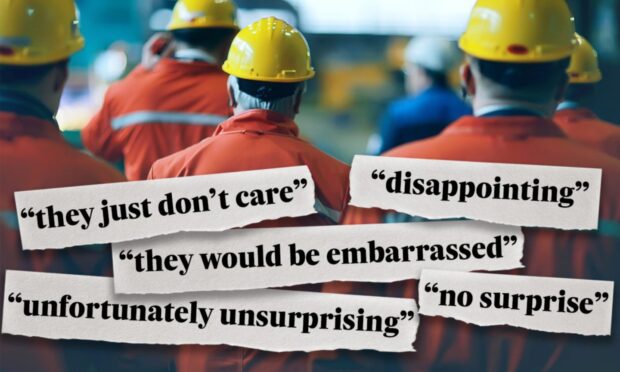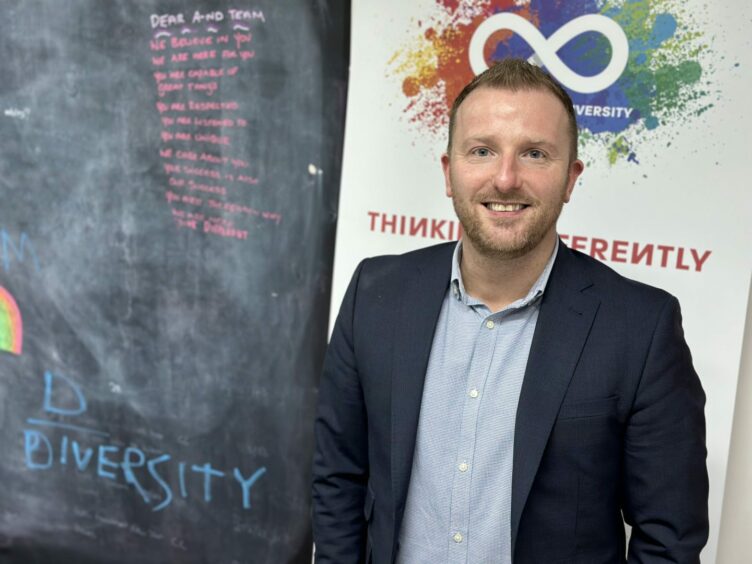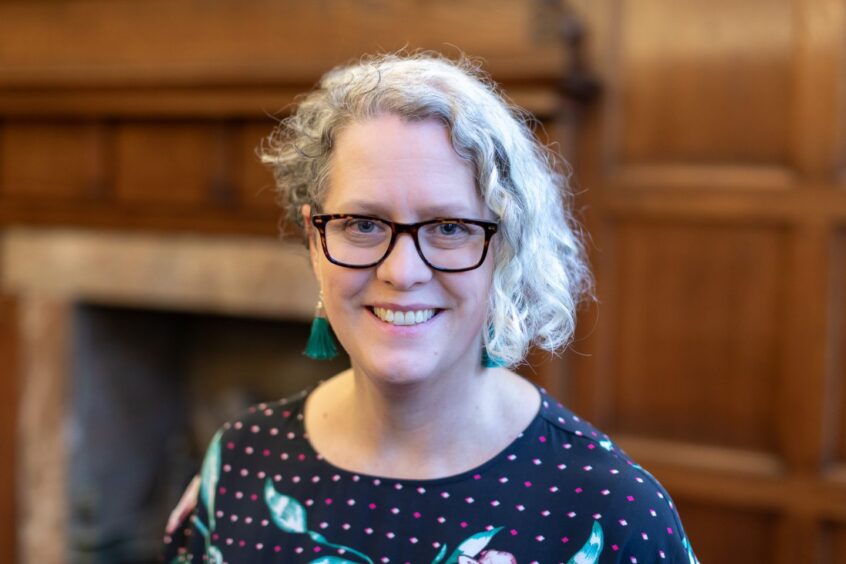Hundreds of North Sea energy firms have failed to respond to a key survey on their diversity and inclusion (D&I) practices, raising questions about their progress and commitment.
Just 5% of 400 member firms of leading trade body Offshore Energies UK (OEUK) responded to an employer survey on their D&I work, and only seven completed it with data other than age and gender.
It comes after a wider workforce report in 2021 said D&I is “critical” to the sector achieving net zero and the energy transition, as it reported the industry was 84% white and 55% male.
Commentators firmly criticised the industry for its latest lack of respondents, including that cultural conditions may not be right within organisations for employees to openly provide data to their employers.
One commentator said: “Is likely that the lack of reporting is due to the stats being so bad they would be embarrassed by it, or else they just don’t care.”
Harbour Energy, the UK’s largest producer of oil and gas, was among the firms that only provided data on age and gender on this latest report – it’s understood the firm is now implementing new data gathering measures to track D&I across six categories.
Press& Journal sister website Energy Voice asked several major operators and Tier 1 contractors whether they took part.
Shell, BP, Aker Solutions, Subsea7, Baker Hughes, Petrofac declined to comment. TotalEnergies, SLB, Equinor and Wood did not respond to a request for comment.
Energy firms experience ‘diversity fatigue’
OEUK launched the employer survey on the issue last year to find out whether firms “had previously collected D&I data and if not, why not”.
It said: “There is more we can and must do to support companies to participate in future years”, but noted a separate employee survey showed improving sentiment on the issue – the Employee survey showed that on average workers rated the D&I Index 7.27 out of 10, compared to 2021’s 7.1.
Beena Sharma, CCU International chief executive, said the lack of employer respondents is “disappointing to hear but not hugely surprising”.
“We still see lack of diversity across the board and mostly it does feel like nothing is changing despite many of the major players putting in measures and programmes around attracting and retaining a diverse workforce. I am sure there will be exceptions to the rule.
“There are many initiatives and many organisations that are working hard at changing this like AFBE, but fact remains that it is still not the most welcoming industry to people like me.
“Personally, I see so few people that represent me in positions of responsibility and in leadership and it can be hard to engage in an environment where you feel alienated because of what you might look like, your disability or the background you come from.”
Co-chair of AFBE-UK Ollie Folayan said the “disappointing” response rate “speaks to a sense of diversity fatigue that has set in since most companies have yet to embed inclusivity into the regular running of their business”.
“The merits of a targeted diversity initiatives are well documented,” he added, and will attract the best talent.
OEUK supply chain and people director Katy Heidenreich said: “There is more we can and must do to support companies to participate in future years, including how we help companies to share data in the most efficient way.”
Head of gender equality pressure group POWERful Women, Georgina Worrall, said cultural conditions need to be right for employees to share data.
Ms Worrall added: “People want to be assured that any data they give isn’t going to jeopardise their job or career opportunities in any way and that, on the contrary, it will lead to positive improvements.
“In other words, as with many policies and actions in the D&I space, they want to feel heard. ”
‘Unfortunately unsurprising’
OEUK’s Employer Survey asks firms to “establish a baseline” for sex, ethnicity, age, disability and sexuality.
Despite such low turnout from respondents, energy firms have been keen to show support for D&I events like Grampian Pride – Aberdeen’s premier LGBTQIA+ event – which was sponsored by Shell, Petrofac, Subsea 7, Neptune Energy, Stork, Baker Hughes, Bilfinger, Harbour Energy, Maersk and Spirit Energy.
Alfredo Carpineti, chairman and founder of Pride in STEM, a charity run by an independent group of LGBTQIA+ scientists and engineers, said the lack of survey participation was “unfortunately unsurprising how many companies are unserious about committing to a workplace environment that supports all workers.”
Mr Carpineti added: “If they were to provide the data, they would show just how bad they are doing.”
‘No surprise’ reporting is so low
Earlier this year Press & Journal sister website Energy Voice reported that Autism and Neurodiversity North Scotland (A-ND) was working with energy firms to ensure that the neurodiverse workforce was supported and made to feel welcome.
Billy Alexander, chief executive of charity A-ND, said: “It’s no surprise to see such low engagement with the report and research by member companies, as the conditions are not right for many individuals to speak out, and therefore the companies just don’t have the information to give.”
That being said, Mr Alexander wants cultural changes to facilitate improved reporting in the future.
“It starts with knowledge and understanding and I hope to see many more companies ensure all leaders have neurodiversity awareness training to enable them to start to take active action.”
Gender pay gap sees ‘virtually no change’
In addition to the findings, or lack thereof, from the diversity and inclusion survey, OEUK found that the gender pay gap has seen “virtually no change” since the trade body’s last report.
OEUK defines the gender pay gap in its Workforce Insight report as: “The percentage difference between average hourly earnings for men and women”
Earlier this year, it was found that 21% of energy companies across the UK have no female representation on their board of directors.
In POWERful Women’s Annual State of the Nation report it was found that at the top executive level, women make up just 16% of the roles.
POWRful Women’s Georgina Worrall told Press & Journal sister website Energy Voice: “It’s disappointing to see that the mean gender pay gap for offshore workers has seen “virtually no change” since the last report. Sadly, this is consistent with the UK gender pay gap as a whole, which has hardly moved in recent years.”
Ms Worrall suggested a couple of changes that she says can tackle the gender pay gap. The first was for employers to pay full market value for their role, rather than going on salary history.
“Those kinds of discriminatory questions on salary expectations should be removed from the recruitment process.”
Another contributing factor that Ms Worrall pointed out was the lack of flexible working as women tend to take on “caring roles at home” leading to them getting ” trapped in traditionally lower paid part-time roles below their capabilities.”
She added: “Changes to company policies and culture could make a big difference here.
“Offering flexible working by default in all roles, including higher paid ones, and making flexible working the norm for both men and women, will help to iron out these inequalities.
“Not only will this help close the pay gap but it will ensure that companies aren’t missing out on female talent for leadership roles, which is essential for the energy transition.”



